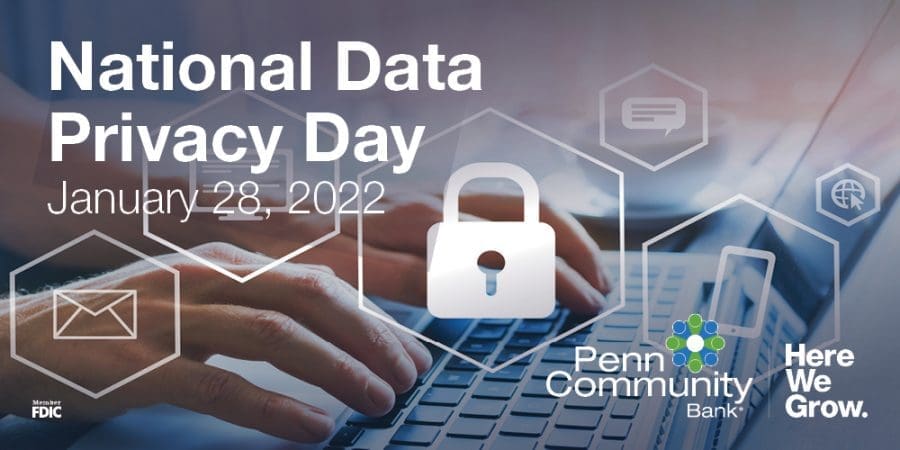
Today is National Data Privacy Day! January 28 serves as an annual opportunity to raise awareness about the importance of respecting privacy, safeguarding data, and enabling trust. When it comes to data protection and data breaches, banking information and accounts is often the first thing to come to mind. But have you ever wondered, how do hackers even get to my banking information?
In a society that’s becoming increasingly digital, many remain unaware about how their personal data – from passwords to credit card information – is being used, collected, and shared. Whether a business owner or a consumer, following these initiatives in your daily actions are sure to keep you protected from data crimes. Sometimes its privacy violations, but often it’s our own carelessness. Luckily, there are actions you can take to protect yourself.
Social networking
The social platforms you log on to everyday may seem harmless, but essentially everything you do on the platform is being recorded, analyzed, and shared. Even if it’s not publically visible, hackers know how to access your full name, address, email, phone number, and much more. You’ve surely heard this one before – use strong password phrases and use a variety of passwords for your accounts. It makes a difference.
Next time you create a social media account, don’t just mindlessly “accept” all privacy terms and conditions. Be sure to read carefully and understand what personal data you’re putting at stake.
Privacy settings and WiFi
Every time you use a new device, whether it’s a smartphone or desktop, check your privacy settings immediately. If it’s not relevant to what you’re doing online, make sure applications, social media, and other programs are not tracking your location or remembering account passwords on the device. If you’re in a public place, use your own cellular data rather than unsecured public WiFi, especially for online banking or shopping.
If you’re waiting in line for coffee or at the grocery store, ask yourself if you really need to use public WiFi.
Phishing
Once they have the slightest bit of your contact information, hackers are home free. Just your email is a gateway for cyber criminals to send you fraudulent and misleading emails to trick you into revealing personal information like passwords or credit card numbers. Never click on any suspicious link from an email you’re unsure about. Reputable companies will never ask for your credit card information via email.
A simple step you can take is to unsubscribe from unnecessary mailing lists to limit the amount of incoming emails in your inbox. Having less to worry about will help you catch something that looks unusual.




